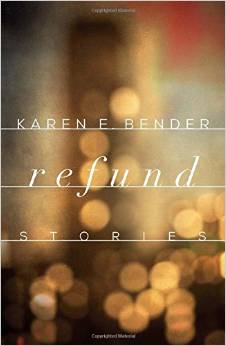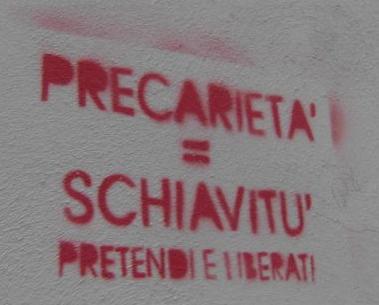Refund: Stories | Karen E. Bender

My review of Karen E. Bender’s short story collection, Refund ran today in the Boston Globe.
When I visited Milan and Venice last year, I noticed that both cities were rife with graffiti, most of it with a political bent. Milan’s graffiti was loopy, messy, and from what I could tell, it was mostly aimed at expressing displeasure with a planned high-speed train project in the region (“NO TAV“).
In Venice, I saw more stenciling than tagging, and the political objectives were broader and more philosophical.
One of the spraypainted stencils read: PRECARIETA’ = SCHIAVITU.
When I got home and looked it up, I discovered it translated to “Insecurity = Slavery,” with “insecurity” more specifically denoting temporary worker status. The premise of the slogan is that those who toil in temporary jobs, with no benefits and no job protections or security, are slaves, beholden to the whims of their employers, who can threaten them into compliance with the prospect of unemployment and certain ruin. These workers are known among economists as the precariat, which is a portmanteau of “precarious” and “proletariat.”

There’s nothing explicitly political about Refund (aside from the fact that it’s being published by Counterpoint). But it concerns characters who clearly fit into the “precariat” class, who struggle to understand their value as people in a world that measures everything in money.
Bender’s prose is light and unassuming. Prosaic. At first, I found myself bored by the simplicity, and bored by the rather mundane happenings that her stories detailed. But by the end, I realized that the things that seemed so boring about the stories were, in fact, deeply tragic. It’s just that we’ve become inured to the indignities that people have had to endure during the latest recession: the layoffs, the loss of benefits, the underwater mortgages, and the predatory scammers who seek to take advantage of those who are at the end of their rope. Refund reflects our struggling world back at us, and dares us to take a step back and really consider that things haven’t always been this way. And that maybe they don’t have to be.
 |
|